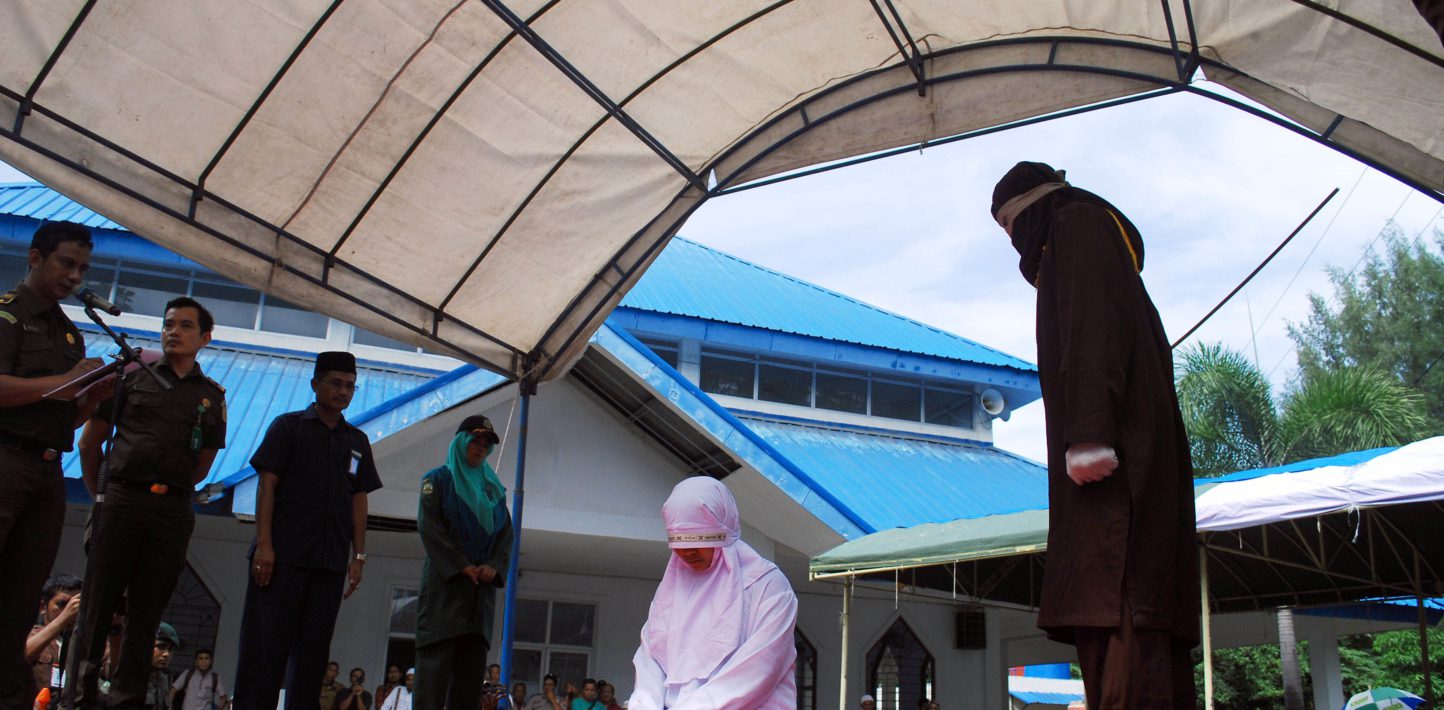Responding to the news that a woman in Aceh collapsed twice while being flogged 100 times on 25 January 2022 for having sexual relations outside marriage, Amnesty International Indonesia Deputy Director Wirya Adiwena said:
“Flogging constitutes cruel, inhuman and degrading treatment and may amount to torture. No one deserves to be brutalized and humiliated in this way, much less to the point of collapsing twice.”
“The fact that the woman had already collapsed once and was still forced to undergo more flogging shows a complete lack of compassion and care for her well-being and health.”
“Both the use of flogging as a punishment and the criminalization of sexual relations outside marriage are clear violations of international human rights law.”
“We once again call on both Aceh and central government authorities to take immediate action to halt these practices, revoke the bylaws that allow them to take place and bring them in line with international human rights law and standards and Indonesia’s human rights obligations under its own Constitution.”
Background
On Tuesday, 25 January, a woman was flogged 100 times at the West Aceh regency prosecutor’s office in Indonesia’s Aceh province. She first collapsed after being flogged 17 times. After being assessed and treated by medical personnel, her punishment was continued. She collapsed again at the end of her flogging.
She had been sentenced to 100 lashes after being convicted of committing sexual relations outside marriage. Besides the woman, three other people were also flogged on Tuesday. One was also flogged 100 times for adultery, while two were flogged 100 times each for “facilitating adultery”.
Aceh is the only province in Indonesia that implements Islamic bylaws. The Aceh Islamic Criminal Code was passed by the Aceh parliament (DPRA) in 2014 and came into effect in the province on 23 October 2015. Islamic bylaws have been in force in Aceh since the enactment of the province’s Special Autonomy Law in 2001 and are enforced by Islamic courts. These laws, in some cases, provide for up to 200 lashes as punishment.
Punishable offences include same-sex sexual relations (liwath), premarital sex and other sexual relations outside marriage (“adultery” or zina), consumption of alcohol (khamar), gambling (maisir), “being alone with someone of the opposite sex who is not a marriage partner or relative” (khalwat), committing sexual intimacy outside marriage (ikhtilath), sexual abuse, rape, and accusing a person of adultery without providing four witnesses.
Under international human rights law, all forms of corporal punishment are prohibited. In 2013, the UN Human Rights Committee, which monitors states’ compliance with the ICCPR, asked Indonesia to take practical steps to put an end to corporal punishment and to repeal the provisions of the Acehnese law permitting its use in the penal system.
Further, consensual sexual relationships must not be treated as a criminal offence punishable by fines, imprisonment or death, nor are they a crime against ‘morality’. The UN Human Rights Committee and other expert human rights bodies have raised concerns about laws criminalizing ‘adultery’ or other consensual sexual relations outside marriage because they violate the right to privacy, and although criminal law definitions of adultery might seem gender-neutral, in practice, the criminalization of adultery is overwhelmingly directed against women and girls.v

